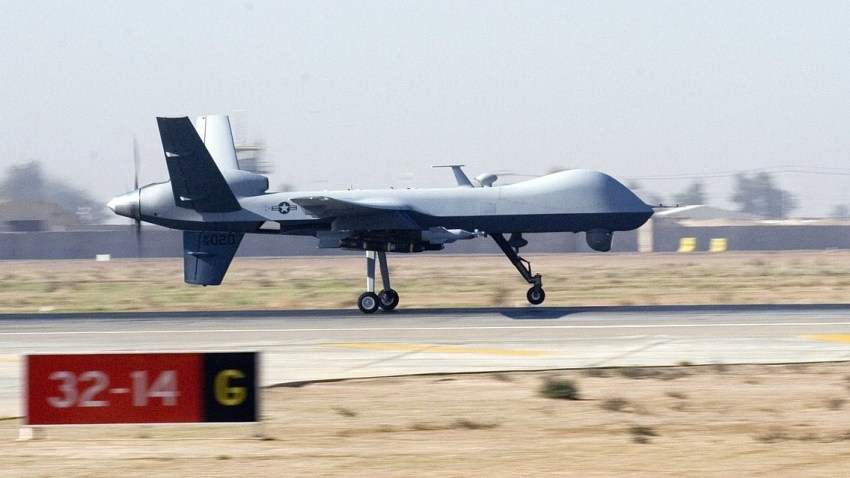The confirmation process last week for David Barron, a former Obama administration lawyer nominated to the federal judiciary, reopened a debate about the justification for what has come to be known as the U.S. “targeted killing” program. But as the politics of the issue heat up, the administration and its critics seem to be relying on different interpretations of the terminology at the heart of the debate, and their underlying disagreement speaks to broader questions about the future of the American war on terror.
For many critics of the administration’s approach to counterterrorism, the term “targeted killing” has come to epitomize the problems with drone warfare—what they see as the unethical, illegal use of force against America’s enemies off the battlefield.
The journalist Glenn Greenwald has prominently
criticized the use of the term, telling the Washington Post’s Erik Wemple that he sees “targeted killing” as synonymous with “targeted assassination.”
That position caused a stir. Assassinations have long been illegal under U.S. law, and although there is some dispute about what precisely constitutes an assassination, typically the killing of military targets in war would be excluded. But Greenwald argued that in the case of drone strikes, targeted killing is a “euphemistic term” used by the government to deflect public reaction.
Mary Ellen O’Connell, a law professor at the University of Notre Dame, echoed that view in a phone interview. The phrase “targeted killing,” she says, “has been used inappropriately to try to obfuscate the true illegal nature of killing persons outside of armed conflict zones using extrajudicial methods.”
Targeted killing has become the standard phrase in the media to describe the administration’s use of force outside Afghanistan, and the administration, too, has adopted it in certain critical contexts. In a leaked
white paper that summarizes the view of a longer legal memo Barron wrote, the Department of Justice described a potential lethal action against U.S. citizen and extremist preacher Anwar al-Awlaki as a targeted killing: “In defined circumstances, a targeted killing of a U.S. citizen who has joined al-Qaida or its associated forces would be lawful under U.S. and international law.”
Awlaki was killed by an American drone strike in Yemen in 2011.
In his public statements, President Barack Obama has tweaked the language. In a watershed
speech last year at the National Defense University, Obama outlined and defended the drone program and specifically its targeting of Awlaki. The words “targeted killing” do not appear in the text, though they are clearly in the background. “The United States has taken lethal, targeted action against al-Qaida and its associated forces, including with remotely piloted aircraft commonly referred to as drones,” Obama said.
John Brennan, then Obama’s chief counterterrorism adviser and currently the CIA director,
has used the phrase “targeted strikes” to describe the program.
For O’Connell, this selective emphasis on targeting “sends the message that this is somehow targeted and precise and only the bad guys are being killed,” she says, when in fact drone strikes
have killed numerous civilians outside of America’s official armed conflict zone in Afghanistan.
Before the current dispute, the term “targeted killings” was most closely associated with the Israeli military campaign against suspected Palestinian terrorists. The George W. Bush administration publicly objected to the Israeli campaign, with State Department spokesman Richard Boucher
stating in 2001, “We're against this practice of targeted killings.”
The term itself
was apparently coined or at least popularized by Human Rights Watch. Database searches of newspaper articles reveal that it was first used by the media in 1993, when Kenneth Roth, the executive director of Human Rights Watch, told the Guardian that Palestinian security forces were guilty of unjustified “targeted killings.”
Roth, in an email, explained that “targeted killing” is used to differentiate an act from two types of illegitimate killings: “An ‘execution’ requires the victim to be in custody, whereas the victim of a targeted killing typically would not be. By the same token, in warfare there can be indiscriminate targeting of civilian areas or even deliberate targeting of those areas without regard to a particular victim, but if the aim is to kill a particular person, that would be a targeted killing.”
Here, then, is the analytical muddle driving the dispute. As its use by Human Rights Watch indicates, “targeted killing” was originally a term of art to describe actions by military or security forces outside of their plainly legitimate role in combat. Targeted killings, in this usage, are precisely those lethal actions in the legal and moral gray area where the justification for targeting the person to be killed is uncertain.
But Obama and Brennan’s emphasis on the careful targeting that they claim underlies drone strikes illustrates why the term is tempting for administration officials. If one accepts that killings are permissible or perhaps necessary to defend the United States—to defend against what the government claims are imminent threats in Yemen and other countries—then it follows that it is desirable for those actions to be “targeted.” By this logic, targeted killings are in fact the best lethal anti-terrorist program available.
For O’Connell and others, however, the idea that a state of war extends to Yemen, not to mention Pakistan or Somalia, is wildly implausible. Hence killings of suspected terrorists in those places by U.S. actors, using drones or otherwise, are illegitimate, and therefore whether or not they are “targeted” is irrelevant.
What this suggests is that the real domain for debate is not whether the administration should be more carefully choosing its targets—for instance, by abandoning so-called signature strikes, for which the underlying intelligence
is relatively vague—but whether any kind of killing should be allowed at all outside of declared war zones. The dispute about targeted killing, in other words, is really about the frontiers of America’s war on terror.

